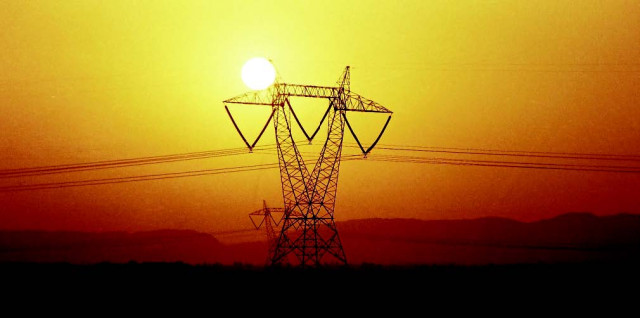IMF wants Pakistan to phase out power subsidies
Agreeing to demand may force caretaker govt to raise power tariff for consumers.

Caretaker government will have to give Rs400 billion as subsidy to power consumers, if it does not go for the tariff hike. PHOTO: ARIF SOOMRO/EXPRESS/FILE
Sources informed The Express Tribune that Pakistan and IMF are expected to meet on April 14-15 in Islamabad and power sector reforms will be on top of the agenda.
The IMF wants that the power subsidies should be gradually phased out within four years.
The Fund also stressed on the use of gas for producing power, but the petroleum minister informed the Ministry of Water and Power that it had no gas for power plants.
IMF wants power plants to switch to gas, which will help reduce the burden on the national exchequer by cutting subsidy out of the equation. The Washington-based fund had also expressed concern over rolling back reforms by placing the power sector under the jurisdiction of the Water and Power Development Authority.
Under the proposed reforms for the power sector, Pakistan was to dissolve the Pakistan Electric Power Company (Pepco) and give autonomy to DISCOs with independent boards of directors. But, the government created another parallel company – Genco Holding Company – to monitor the sector.
Previously, following the directions of the PPP-led government, the National Electric Power Regulatory Authority (Nepra) held the decision of revising power tariffs for the current fiscal year despite filing of petitions in June 2012 by distribution companies (DISCOs). Nepra had now started notifying the DISCOs to increase the power tariff, which could add up to Rs4 per unit to the present tariff.
“We have received decisions of Nepra regarding the hike in tariffs for the consumers of Islamabad Electric Supply Company (Iesco), Peshawar Electric Supply Company (Pesco), Lahore Electric Supply Company (Lesco) and Gujranwala Electric Power Company (Gepco),” the official said.
“The policy of raising the power tariffs will be chalked out after the new caretaker water and power minister is sworn in,” he added.
“At present, several plants with 1,250 megawatts (MW) generation capacity are shut down due to unavailability of gas” said an official of the power ministry, adding that the petroleum ministry was approached to allocate gas to the power producers, but the request was declined by them saying that the country was already facing gas shortages.
Traditionally, tough decisions are always left for the interim setup.
During Musharraf’s regime, oil and power prices were frozen and the caretaker government had to increase the power tariff by 31%, causing countrywide protests.
Now, the PPP-government has also shifted their share of tough decisions over the shoulder of the interim government, which will have to raise the tariffs, otherwise the government will have to pay out massive amount of subsidies.
If the caretaker government does not go for the tariff hike, it will have to give Rs400 billion as subsidy to power consumers. The recently departed government had also paid Rs254 billion as subsidy against the allocation of Rs180 billion. Thus, the official said, the government has no more money to inject in the power sector as the finance ministry had already refused.
Quoting figures, the official of the power ministry said that payables of the power sector stood at Rs435 billion presently. Receivables also stand at Rs425 billion, which may lead to collapse of the energy sector.
Published in The Express Tribune, April 3rd, 2013.
Like Business on Facebook to stay informed and join in the conversation.



















COMMENTS
Comments are moderated and generally will be posted if they are on-topic and not abusive.
For more information, please see our Comments FAQ